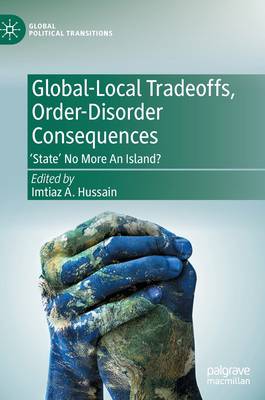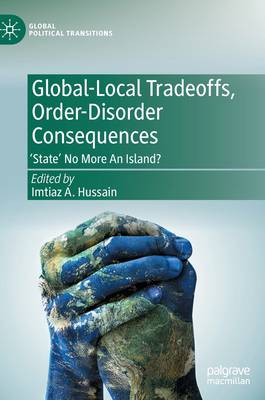
- Retrait gratuit dans votre magasin Club
- 7.000.000 titres dans notre catalogue
- Payer en toute sécurité
- Toujours un magasin près de chez vous
- Retrait gratuit dans votre magasin Club
- 7.000.0000 titres dans notre catalogue
- Payer en toute sécurité
- Toujours un magasin près de chez vous
Global-Local Tradeoffs, Order-Disorder Consequences
'State' No More an Island?
Description
In this book, ten substantive chapters examine how collisions between technological developments (globalizing forces) and thickening populist pressures (localizing dynamics) constantly keep reinventing the state in unforeseen and unpredictable ways. We learn of how international organizations have fared, and to what extent grass-roots grumbles have impacted big-picture developments in quite diverse parts of the world.
Just placing unfolding crises under the microscope cannot but generate policy-solving observations. Treated in corresponding order, these crises revolve around adjusting international institutions; absorbing current populist outbursts; shifting from peacekeeping to peacemaking; spying in the global south; absorbing displaced persons; Rwandan land reform; pandemic and RMG readjustments; Bangladesh's democratic transition; Rohingyan-Syrian refugees; and Mexico's 1990s liberalization. Though overarching, observations in the book accent state strength battling with state porosity; the downward spiraling of global order; and the simple lack of any controlling mechanism against globalizing/localizing dynamics in the trenches of everyday life being matched by continued uncertainty on the analytical plane.
Spécifications
Parties prenantes
- Editeur:
Contenu
- Nombre de pages :
- 330
- Langue:
- Anglais
- Collection :
Caractéristiques
- EAN:
- 9789811694189
- Date de parution :
- 01-04-22
- Format:
- Livre relié
- Format numérique:
- Genaaid
- Dimensions :
- 148 mm x 210 mm
- Poids :
- 580 g

Les avis
Nous publions uniquement les avis qui respectent les conditions requises. Consultez nos conditions pour les avis.





